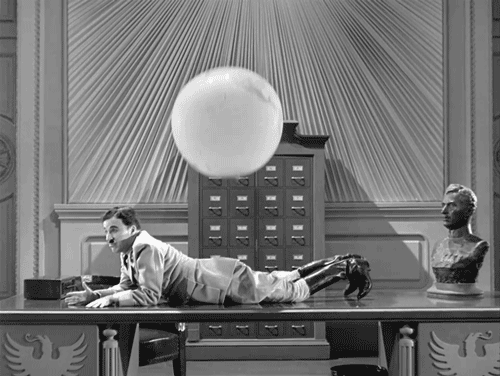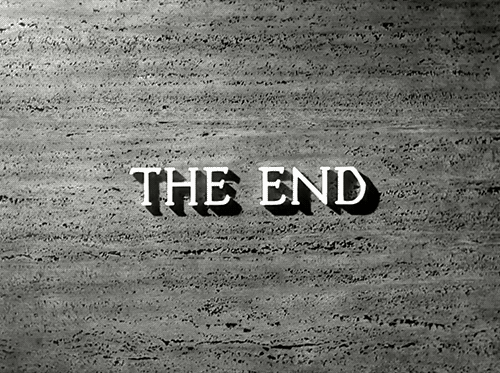“The Great Dictator”
Thousands Cheer
Richard Brody


The great and grand speech with which Charlie Chaplin ends “The Great Dictator” — the speech that the Jewish barber, mistaken for the Tomainian tyrant Adenoid Hynkel, delivers to the waiting crowds in conquered Osterlich as well as, over the airwaves, to the entire world—builds to a fevered, hortatory, martial conclusion:
With which, the crowd roars its approval. In the studio, as we wrapped up our recording of this week’s DVD of the Week, Monica Racic, the producer, called my attention to the expression on Chaplin’s face at the moment that the cheering erupts: it’s a look of desperate fear, even terror, and it’s the last look at Chaplin that the movie offers. The Jewish barber recognizes—and, indeed, Chaplin himself recognizes—that, in calling for peace, he was really calling for war; and that the medium in which he did so was no mere Union Square soapbox but the bully pulpit of the world. Chaplin began that speech by saying, “I’m sorry, but I don’t want to be an emperor. That’s not my business. I don’t want to rule or conquer anyone.” Yet rule he would, facing down Hitler in the same mass media with which Hitler (who knew well the centrality of movies and radio to his regime) held his followers spellbound.
P.S. On the subject of Hitler’s radio speeches, Heinrich Böll-a worthy winner of the Nobel Prize for Literature (whose name is dropped in Woody Allen’s “Manhattan”) - has a great passage in his grimly comical short story, “Murke’s Collected Silences,” from 1953, about a young radio technician, who, here, is addressed by a senior colleague:
“When I was your age I once had to cut three minutes out of a four-hour speech of Hitler’s, and I had to listen to the speech three times before I was considered worthy of suggesting which three minutes should be cut. When I began listening to the tape for the first time I was still a Nazi, but by the time I had heard the speech for the third time I wasn’t a Nazi any more. It was a drastic cure - a terrible one, but very effective.”
It was indeed a drastic cure - though Chaplin’s performance as Adenoid Hynkel - his ferocious parody of Hitler-might have had the same effect.

“Soldiers! In the name of democracy, let us unite!”
With which, the crowd roars its approval. In the studio, as we wrapped up our recording of this week’s DVD of the Week, Monica Racic, the producer, called my attention to the expression on Chaplin’s face at the moment that the cheering erupts: it’s a look of desperate fear, even terror, and it’s the last look at Chaplin that the movie offers. The Jewish barber recognizes—and, indeed, Chaplin himself recognizes—that, in calling for peace, he was really calling for war; and that the medium in which he did so was no mere Union Square soapbox but the bully pulpit of the world. Chaplin began that speech by saying, “I’m sorry, but I don’t want to be an emperor. That’s not my business. I don’t want to rule or conquer anyone.” Yet rule he would, facing down Hitler in the same mass media with which Hitler (who knew well the centrality of movies and radio to his regime) held his followers spellbound.
P.S. On the subject of Hitler’s radio speeches, Heinrich Böll-a worthy winner of the Nobel Prize for Literature (whose name is dropped in Woody Allen’s “Manhattan”) - has a great passage in his grimly comical short story, “Murke’s Collected Silences,” from 1953, about a young radio technician, who, here, is addressed by a senior colleague:
“When I was your age I once had to cut three minutes out of a four-hour speech of Hitler’s, and I had to listen to the speech three times before I was considered worthy of suggesting which three minutes should be cut. When I began listening to the tape for the first time I was still a Nazi, but by the time I had heard the speech for the third time I wasn’t a Nazi any more. It was a drastic cure - a terrible one, but very effective.”
It was indeed a drastic cure - though Chaplin’s performance as Adenoid Hynkel - his ferocious parody of Hitler-might have had the same effect.
The Great Dictator Speech
No Music
Charlie Chaplin
👇 📽️ 👇
The hate of men will pass, and dictators die, and the power they took from the people will return to the people.
Don’t give yourselves to brutes - men who despise you - enslave you - who regiment your lives - tell you what to do - what to think and what to feel! Who drill you - diet you - treat you like cattle, use you as cannon fodder.
Don’t give yourselves to these unnatural men - machine men with machine minds and machine hearts!
You are not machines! You are not cattle! You are men!
You have the love of humanity in your hearts!
You don’t hate! Only the unloved hate - the unloved and the unnatural!
Don’t fight for slavery!
Fight for liberty!
- Charlie Chaplin speech (1940)
Don’t give yourselves to brutes - men who despise you - enslave you - who regiment your lives - tell you what to do - what to think and what to feel! Who drill you - diet you - treat you like cattle, use you as cannon fodder.
Don’t give yourselves to these unnatural men - machine men with machine minds and machine hearts!
You are not machines! You are not cattle! You are men!
You have the love of humanity in your hearts!
You don’t hate! Only the unloved hate - the unloved and the unnatural!
Don’t fight for slavery!
Fight for liberty!
- Charlie Chaplin speech (1940)
👇 📽️ 👇


No comments:
Post a Comment